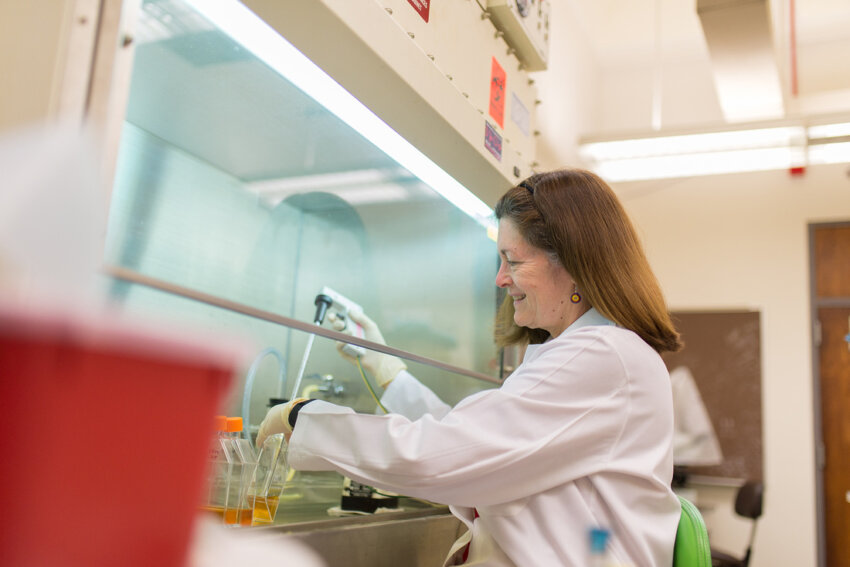UT Health Science Center San Antonio pediatrics professor, Jannine Cody, PhD, received an SA Lights award at a gala held Nov. 9 for her important work researching Chromosome 18 disorders.
The San Antonio Express-News SA Lights program, now in its third year, honors individuals in the community who make a difference.
Though Cody is admittedly not one for the spotlight, she is more than proud of the work from the many individuals who are devoted to understanding and treating chromosome 18 conditions.
“We are the only research center in the world dedicated to this and have been so fortunate to have the support of UT Health Science Center through the 30-plus years of this endeavor,” said Cody, who is the director of the university’s Chromosome 18 Clinical Research Center and founder of the Chromosome 18 Registry and Research Society.
Chromosome 18 disorders are rare genetic conditions that cause an array of medical problems and cognitive impairment. While these are ultra-rare conditions, to the families affected by them it defines their entire life, she said.
Chromosome 18 abnormalities conditions can involve a range of issues that affect development, growth, behavior and cognition, and can cause kidney problems and hearing and vision issues. Due to the variety of duplications and deletions of the chromosome that can occur, the medical, developmental and behavioral issues that present vary greatly from one person to the next, making Cody’s work to understand the potential role of each of the 263 genes on chromosome 18 critical to understanding and catalog these complex conditions.
“We’ve spent much of our effort trying to correlate which symptoms go with which piece of the chromosome and ultimately which genes so that we can be more predictive and helpful for families,” Cody said.
The work of the Chromosome 18 Clinical Research Center has defined standards of care and best practices for people with these conditions. It provides consolidated data pulled together from numerous research articles into management guides that families can take to their doctor to help inform care. The center also works to develop novel treatments when standards for a particular condition are unknown. Every resource from the center is free and accessible the world over.
“To study all the chromosome 18 conditions, we’ve relied on the expertise of a lot of people across many departments and multiple schools here at the health science center,” Cody said. “This has really been a UT Health Science Center San Antonio project because so many people have been involved from so many parts of the university.”
Related stories:
Mother’s love leads to research career
Chromosome 18 marks 25th anniversary


